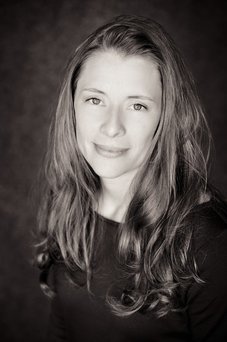 Sarah Reichert (S. E. Reichert) is a writer, novelist, poet, and blogger. She is a member of Northern Colorado Writers, Wyoming Writers, Inc., and a member of The Romance Writers of America. She is the author of Fixing Destiny, Finding Destiny, and Fighting Destiny a series of paranormal romances set in Maine. Her work has been featured in The Fort Collins Coloradoan, Haunted Waters Press, Tuliptree Publishing’s 100-Word Dash, and Sunrise Summits: A Poetry Anthology. She has blogged for The Writing Bug and the Be True Be Love website. She plans to debut her own blog this summer tentatively titled “The Beautiful Stuff”. Reichert lives in Fort Collins with her family. We all begin somewhere, usually not having a clue where we will go or what will become of the quick flash of light that is our human existence. When I began writing, some time in the fifth grade, I didn’t understand what I was doing. I only knew that ideas were in me and they needed to get out. Post-it notes, notebooks, floppy disks full of ideas and characters, poetry, essays, thoughts that occurred to me randomly or stewed in my brain for months, all cumulated into boxes and files of thought. Still, I never considered myself a writer. I just had ‘stories’. I only ‘dabbled’. I was a girl who tended towards depressive thought and knew I felt better when I wrote. I daydreamed about different lives, different people, and how they would move through the world. They were only stories, nothing fantastical or significant. When I moved from Wyoming to Oregon, to California, and finally to Colorado, my words moved with me. I would occasionally pull out each page like a handmade ornament, re-reading and losing myself in my words. I remembered what was happening in my life at the time I wrote them, then I’d carefully put them back. After the birth of my first daughter, and deciding that even though it was a financial hit, I’d much rather spend my days with my greatest creation than putting up with cranky adults, I found a different kind rhythm to life. I gained moments in the day that I could explore my writing. I started to write more in depth and longer stories as the characters in my life fleshed out from my own experiences and failures. My writing became more interesting; it became more complex as my life did. It evolved. Soon, I was cramming in word counts during nap times and typing madly away in the car during preschool, until, little by little, paragraph at a time, I had a book. A book I’d written. A beginning, a middle, and an end, filled with characters that I loved and cared about. Only then did I wonder: Could it be that I was a writer? Is that what it meant? That my “stories” were actually part of my identity? That maybe I could pull out the boxes of secret thoughts and see that I had always been a writer? Being self aware as a writer didn’t happen over night for me. Most artists understand who they are early on, but I never thought enough of myself to believe I possessed any kind of mad-genius creativity. I only knew the words burned inside and I wasn’t happy until I pulled them out. Along my journey, inspirations came from all over. The books and writers I loved (Jane Austen, Emily Dickenson, Lord Byron, Shelly, Whitman, Charlotte Bronte, Nora Roberts, Stephen King, Preston Child, Paulo Coelho, Jean M. Auel, Anne Rice, Robin McKinley, Connie Willis, Neil Giaman), quirky stories and complex characters pulled from my own life, from movies, books, and even the news, all gave me fodder for creating my own worlds. Where one thought travels, more tag along behind. Writing is a tough journey. It is wrought with tears and missteps. I’ve failed spectacularly on the page more times than I care to admit. There are times when I look at my laptop or tattered composition notebooks and physically feel the frump of not wanting to write. Many times, I feel I don’t have anything left to give the page. But that’s never true. It’s inside, and more often than not, festering to be let out. What keeps me going back, is not that its always fun or easy, but that the work I put in, (the hard hours of editing or writing pages that will never come to anything themselves) has cemented in my head, where it matters most, that I am a writer. My writing isn’t insignificant, its integral to who I am. One book led to two, which led to three and now soon to be six. I didn’t know when I sat in the rocking chair in a state of nursing exhaustion, and thought about a girl and a ghost that it would be a bellwether to my writing career. A brilliant, burning light that led me through the darkness and inspired me to tell her story. (Fixing Destiny, Finding Destiny, Fighting Destiny) I didn’t know it would instill in me the courage to tell all of my characters’ stories, because they matter. All stories matter. Getting them out of your head and onto a page matters. To you, to your health, to your mental well-being. To your journey. We can only move forward if we honor what burns inside of us. I’ve learned in whatever state I am, in whatever moment of life, in whatever hardship I’m shouldering, that writing is my tool. It helps me work through my depression and anxiety. It helps me regroup. I’ve learned that not all of my writing is meant for everyone. And even the writing I do make public will not affect everyone the way that it has me. I’ve learned, most importantly, that that’s okay. Our jobs as writers are not to please everyone, or sell a million copies. Our job is to write. Bring what burns inside of you out and light the world. Recent WorkYou can follow her recent releases and news about her writing on her Facebook page: https://www.facebook.com/S-E-Reichert-1481962018748184 Sarah's novels can be found on Amazon: https://www.amazon.com/Fixing-Destiny-S-E-Reichert-ebook/dp/B00IEF13JU/ref=sr_1_6?ie=UTF8&qid=1489275395&sr=8-6&keywords=S.+E.+Reichert
https://www.amazon.com/Finding-Destiny-Southtown-Harbor-Book-ebook/dp/B015OMWXJY/ref=sr_1_4?ie=UTF8&qid=1489275395&sr=8-4&keywords=S.+E.+Reichert https://www.amazon.com/Sunrise-Summits-Anthology-Featuring-Northern/dp/0692789421/ref=sr_1_1?ie=UTF8&qid=1489275466&sr=8-1&keywords=Sunrise+Summits
0 Comments
 Andrene’s graduation piece for a presentation skills course she took for work was entitled, Breeding before Forty and garnered enough laughs that she was persuaded (some might say coerced) into taking part in a rookies’ night at an Auckland comedy club. The club asked her back and she stayed on the professional stand-up circuit for three years, before retiring to concentrate on her long-form writing. Her novels are irreverent, edgy and very funny. I’ve been hooked on writing, ever since getting my first favourable review, aged 9. It wasn’t 5 stars; it was an A on a writing exercise in English Class. I’m still not sure what our teacher was thinking, getting 9 year olds to write a story about a real-life Welsh mining disaster where a school-full of kids was buried by a collapsing slag heap. I had nightmares for weeks. There was then a hiatus until my writing got a kick start courtesy of having to pen my own speech for a presentation skills course for work. I wasn’t able to help myself. There was going to be no dull, boring speech for me. I had to slip in a few laughs. And then a few more. One thing led to another and next thing I know I’m writing my own routines for stand-up. I stayed on the professional circuit for three years in a constant haze of writing, pure unadulterated fear (that was the performing part), tweaking the jokes to make them work better and then trying them out again. It taught me about writing to a deadline and taking feedback constructively, even if it hurt at the time. Drunk people can be incredibly cruel. It was around this time I decided to try my hand at writing something longer. Something that could be understood by people who weren’t half, or in some cases, fully cut. I dutifully crafted a synopsis and a few chapters and sent them off to an agent to get myself signed up. Boom! Blown out of the water. Ever so nicely, I have to say. Such a newbie mistake to make, looking back. If memory serves me correctly, I burned the returned submission, whilst dancing naked around the fire and cursing the agent’s name to the heavens. But it was this very kick up the bum that set me on the path to being a published author. I took courses, so many courses. All of them useful, but none of them really giving me the key I was looking for. I was then very fortunate to be accepted into a six month creative writing course. The course itself was average, what was brilliant about it was my being assigned a mentor for the final month. I didn’t just get any mentor, I got assigned a mentor who’d had a book on the New York Times Best Sellers List, who’d taught creative writing at university level and who believed in called a spade a $#@*$ shovel! Let’s put it this way, when submitting work to her I NEVER made the same mistake twice. The woman’s lessons stuck like %$#@ to a blanket. I’m paraphrasing here. Because of her input and my hard work, when I submitted my novel, This Girl’s Abroad, to my preferred publisher, it was accepted straight off. I think I might have cried. Okay, I did cry. And danced. No fire this time. Since then I’ve gone on to publish Mounted and Hung and Screwed for Money. These three titles make up my Excess Baggage Series which is set in the fabulous seventies. A time when life was simple, pants were wide, heels high and hair as close to Farah as you could get without asphyxiating yourself. The series is a little like That '70s Show, but with an R Rating. I’m currently working on DietVale, a comic horror set on a fat farm on the Coromandel Peninsula in New Zealand. It follows one woman’s journey from lard arse to kick arse, all while on a steady diet of B-List Celebs. And if that wasn’t enough, I’m also writing a series of novelettes that sit alongside the Excess Baggage Series. These are only available to my subscribers, although after I’ve finished all five or six of them, I might publish them as a collection. The first, Smashed Nuts, is available now. My motivations are definitely being able to write as well as my heroes Anne Rice, Marian Keyes and Janet Evanovich, to have people love my books and to know I’ve brought laughter into their lives. There are a lot of very serious books out there and sometimes, if you’ve had a rough day, that’s not what you need. Listen to me, I sound like Freud! One writer I would love to meet is Bill Bryon. I adore the man’s ability to describe a place in a few well-chosen words that somehow have me laughing until my sides hurt. It’s a skill I’d like to emulate one day. Most Recent Work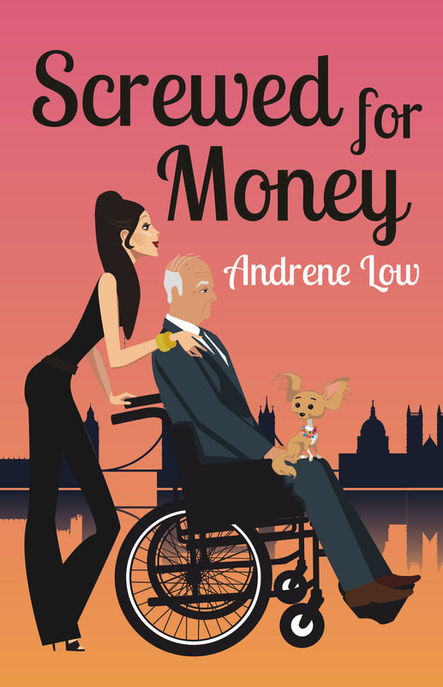 SCREWED FOR MONEY – Book 3, Excess Baggage Series Brenda hasn’t had a money worry since puberty hit, because she’s always been well cared for by the elderly gents she’s latched onto. There’s none so generous as an older chap who’s allowed to get his wrinkled mitts on a pair of boobs not in danger of being tucked into a waistband. She’s therefore gutted when her very healthy nest egg courtesy of one of them is scrambled through no fault of hers. On the bones of her arse, her choices are going back to a love live littered with dodgy prostates and bouts of emergency CPR, or getting a job. But Brenda has issues with the old nine-to-five, preferring nine-ty-five-and-loaded and so the plan to teach others the art of relieving rich old gents of their spare change is one borne of desperation. She’ll be golden, so long as she can avoid being arrested. You can follow Andrene online at: www.andrenelowauthor.com twitter.com/AndreneLow Instagram.com/andrenelow/ nz.pinterest.com/andrenel/ Where to Buy Screwed for Money#WhatsYourStory is a weekly guest column at AmyRivers.com. The focus is on our writing lives and the risks we've taken to achieve our writing dreams. Please share these stories and help support a talented group of authors.
Welcome to March, dear readers! I am so honored to have Laurie Notaro as my guest blogger today and the first in my #WhatsYourStory series, featuring established and aspiring authors who will share their experiences in this writing life. You can find Laurie's books on the shelves of your favorite bookstores. In addition to her writing work, Laurie recently launched Laurie Notaro Creative, offering structural, line, and copy editing services and consultations to creative and academic writers at every level. Here's what Laurie had to say: 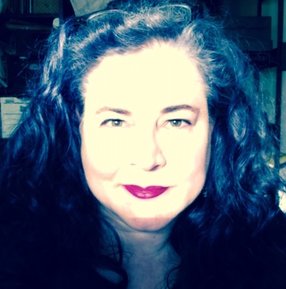 Very clearly, I remember the first morning I came home after my first book tour. It was already a scorching Arizona day at 8 a.m., but when I opened the back door to let my dog out, I smiled when my face was instantly warmed by the sunshine. "This morning will be the morning for the rest of my life," I thought, then poured my coffee and sat down at my desk to work on my second book. That was sixteen years ago. In the course of that time, I've written and published fourteen books of humor, women's fiction and historical fiction. Some did very well; others did not. But every day since then, including this morning, I got my coffee, let the dog out, and went to work at my desk. Today will mark the last morning I move in that routine, my last morning of that life. I, like many, many other authors I know, cannot make a living solely by writing books anymore. It's time for me to get a day job and return to the workforce, and instead of sitting down at my own desk to write, I will be sitting down at another desk across town to give my time and effort to something that does not have my name on it. Believe me, I am grateful that I even have the opportunity and skills to return to the workforce. Before I became an author, I was a reporter and columnist for a large metro daily newspaper; before that, I was an editor at a beautiful city monthly magazine; before that, I was the public relations person for a non-profit. Before that, I started an alternative magazine with my friends straight out of college. I made $800 a month and still had to ask my parents for money. Before that, I spent my college years not in class but working at the university newspaper, often times at the office until at three in the morning literally putting the newspaper together. I graduated with an unimpressive GPA, but with a firm foundation of writing, publishing and knowing what it was like to get paid shit for what you love to do. When my first book came out and made it to the New York Times bestseller list, I hoped I would have a tenure of some sort to stay in the business. I did not know then how difficult it would be to repeat that success, and that in the book publishing world, there is no such thing as tenure. Your record is not in your work, it is not in your effort, it is not in what you put down on the page. It is a numbers game only. I was naive enough to believe that if people wanted better sales, they should write a better book. It was more than naive. It was baseline stupid. The New York Times reported earlier this year that over 80% of the revenue that used to funnel toward newspapers and book publishing now goes to Google and Facebook. That is daunting news for writers who want to make their living doing something that they are the most skilled at. As a result, I am not the only New York Times bestselling author I know of who has gone back to work and will have to write books "on the side," or as a labor of love. For many of us, this is a reality now. Full-time writers have taken an 80% pay cut since 2002. Should this be daunting to new writers? It's not good news, but it should not curb hard work and your passion for telling a story. Without stories, our cultural fabric loosens, it frays, it falls apart. If there is a book in you, a tale, a narrative, you carve out time to put those words down, whether it is at night, early in the morning, or in whatever spare time you can scratch out. I still have stories I want to tell. I still have books I want to write. It will take me longer, certainly, but the need for it does not leave me. I have the knowledge of being in the publishing industry for a very long time; the good news is that new writers are getting published every week. With a strong query letter and solid work, the opportunity to publish has really not diminished. I am a huge supporter of helping new writers navigate the channels of publishing protocol. I will always encourage writers to write; without our words, our society dries up and becomes static. Without new perspectives, we turn to stone. Find the time, tell your story. People need to hear it. My last book was the best thing I've ever written, but it got lost in the frenzy of the election and an uncertain future for our country. It was the real story of three women who were determined to see their goals come to fruition as all of them attempted to make the transatlantic crossing before Amelia Earhart did in 1928. It took me five years of research to write that book, and it was the experience of my lifetime. But the sales numbers were terrible. My publisher turned down my next book proposal, saying verbatim, "Laurie is costing us money." Those were hard words to hear. They were hard words to write. The words that will not be hard to write will be the chapters of the next book, which I have not stopped working on. I believe in telling that story, and whether it is in the dark hours of early morning or late night, in the time that I may have gone to see a movie or on my lunch hour, I will write it. You have my word. 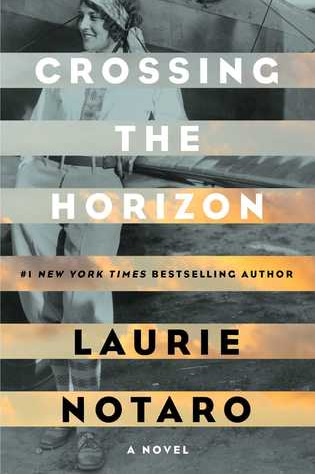 Laurie Notaro was born in Brooklyn, New York, then spent the remainder of her formative years in Phoenix, AZ, where she created something of a checkered past. She is the New York Times best-selling author of the humor memoirs The Idiot Girls Action Adventure Club, Autobiography of a Fat Bride, I Love Everybody and Housebroken, along with numerous others; two humor novels; and Crossing the Horizon, a novel of historical fiction that tells the true story of once famous and now forgotten aviatrices prior to Amelia Earhart that vied to become the first female pilot to cross the Atlantic. She resides in Eugene, Oregon, has a cute dog, a nice husband and misses Mexican food like it was her youth. In February, Laurie launched Laurie Notaro Creative. Visit her website to learn more. www.laurienotarocreative.com  ...channeling West Side Story...OK, moving on. It seems like every day of this new year brings some sort of change for me. I've got projects coming out my nose (really, it's very painful) and am traveling a lot (next week, Tucson Festival of Books). There's the usual insanity of parenthood, marriage and friendship. And although I admit, there are times when I start feeling a little bit overwhelmed, it's hard not to smile. Life is good. When I named this blog "Kissing Authors & Astronauts," I was thinking about risk taking and facing the challenges that come in life. For me, an opportunity to produce an online news site in my hometown put me in contact with some amazing people, and yes, there was kissing involved. It started with Michael McGarrity. Michael is a very talented and charming author based out of Santa Fe. He's a big supporter of libraries, and I worked with him on several programs for our local library. I also went to Santa Fe to interview him about the first book in his upcoming series. During that time, I created programs about literacy, history and culture. I met authors, astronauts and artists, got in free to cover concerts at a beautiful mountain venue and explored local politics during a mayoral election. Sometimes I look back on those days and think: What if I'd said no? What if I'd decided not to take that chance? It was hard work and balancing the news site with the full-time work of my marketing firm was often a juggling act. But I did things that I never would have imagined doing. I was bold. I was brazen. I was persistent. I was unstoppable! Being a writer is also about taking risks. Sure, there are those enviable stories about authors who were discovered and became NYT Bestsellers on their debut novel! Yay! But most of us have to work long and hard to make progress in an industry that can easily be soul-sucking and cruel. We face lots of rejection, some of which is kind. Some, not so much. We get excited when someone loves something we've written, and then we agonize over how to translate that into a viable income base. We love to write, but for many of us, we're also trying to make a living and it's not an easy field to be in. So why are so many of us doing it? And what are the stories of those writers out there in the trenches who didn't find overnight success but persevered? Starting in March, I hope to explore those things on this blog by inviting guest posts from authors who are living the dream (and trudging along). These are funny, smart, creative, hard-working men and women who've decided that being a writer is their passion and will stop at nothing to achieve their goals. Some are full-time writers. Some have day jobs. We'll get to hear a little bit about how they got their starts, the challenges they've faced and where they are in their writing careers. Most of all, we'll be introduced to current authors and writers who are out there creating, and dreaming, every day. Please share these posts with your friends and family. Maybe you'll find your new favorite author right here :)  Seriously?!? Seriously?!? As a former marketer, I understand the need to find a company’s target audience by identifying its niche, its market and by putting it into a category that addresses the needs of that market. So companies in the larger real estate market might be further identified as luxury, or commercial, or residential. You get the idea, right? As a marketer, I learned to embrace this concept. As a writer, I want to scream when it comes to categorization. When people ask what kind of books I write, I automatically wish it was as simple as saying “I write romance” or “science fiction.” The genre writers have all the luck (at least the ones who are comfortably seated in their genre and happily identify with it). For me, it’s complicated. My first run-in as a writer with categorization came about six months after finishing my first novel. I entered the manuscript in a contest, if for no other reason than to get it out there and have another set of eyes on it. When the feedback form arrived a few months later, I was annoyed. Not because I didn’t win (winning wasn’t really my intention and the guy who did win was so out-of-this-world talented that I’m glad he beat me), but because the critic called my work “women’s fiction.” Now, let me first say that I love love love me some women’s fiction. I studied psychology in grad school because I adore delving into people’s emotional journeys. And, I’m a hopeless romantic, so I’m also an avid reader of chick-lit and even some genre romance. Though up until the point when my book was called “women’s fiction,” I can’t say that I ever consciously gave much thought to these distinctions. I love reading characters I can get to know and relate to, whether they’re detectives in police procedurals or heroines in steamy romances. I’m non-discriminating. As long as there’s someone I can root for, I’m happy. So, why was I so irritated by this categorization, you ask? Mostly, I couldn’t really figure out what “women’s fiction” actually was. At the time, it sounded like books that only women would read and, being a woman who reads all kinds of books, that didn’t resonate with me. Further exploration led me to the definition “layered stories that are driven by the main character’s emotional journey.” OK. Maybe my book did fit this genre. After all, the book is all about my main character’s emotional journey as she navigates romance, takes risks in her professional life and comes to terms with truths about her family. But why is this type of story only for women? That was the thing that continued to bother me. The idea that a tale of emotional journey would be marketed as “women’s” fiction seemed terribly unfair to men who might also enjoy that sort of depth. The marketer in me knew that I’d have to embrace some of these categories. So I did. I thought about all the types of readers I wanted to reach, and looked for pathways to those readers. When readers described the book as chick-lit, I started participating in chick-lit-oriented events. Same with women's fiction. I marketed my book in general fiction arenas as well, but the field is so broad and the competition so fierce that the idea of categorizing my book to reach a more targeted audience started to make more sense and felt less objectionable. Until the day when it was suggested that my second book might not meet the criteria for women’s fiction (and that my first book probably didn’t either—too much romance). WTF? I mean, seriously!?! If not women’s fiction, then what? In the past two years, I’ve been told that my book has too much romance for women’s fiction, is too commercial for literary fiction, is too heavy for chick-lit, and is too clean for genre romance. Where in the world do I fit in? It was at the peak of this crisis that I finally had a long talk with myself and reached this conclusion: I just want readers to read my book and form their own opinions. Really. I love that some people read Wallflower Blooming as a light romance and loved it. I love that some people really identified with Val and could apply some of the lessons she learned to their own lives. I even loved the 1-star review on Amazon that lambasted me for pushing my political agenda in my book. My response: “whoa, really? I thought the book was a little fluffy to elicit such venom.” I love that people felt something when they read it, and, of course, I’m glad that most people liked it. Whether they found comfort in the pages or simply a fun escape from the pace of everyday life, it’s really gratifying to have people read a story that you wrote and to feel something for your characters. So, what have I learned from this whole categorization debacle? To keep writing and to stay true to myself. Do I believe that chick-lit readers will love my book? Sure. At least some will. And some readers of women’s fiction will love it. And some will think there’s too much romance. Will romance fans dig it? Yep. And some will say there’s not enough sex. And that’s the beauty of books. We bring as much to each book we read as we find in the pages. It’s a truly unique experience for each and every reader. As a writer, there’s no way to avoid categorization. Just try entering a writing contest or submitting to an agent or shopping for a publisher. Categorization helps narrow down the field and allows our manuscripts to get into the right hands (in theory). It can also be a huge pain in the arse. I imagine that my love-hate relationship with categorization will continue. But what I hope most is that readers will take a chance on my books and form their own opinions. I hope they’ll open the pages and see what speaks to them. Thanks for reading!  J is an excellent feelings letter if you’re feeling jostled, jerked around or even jilted. It’s the perfect feelings letter for someone who writes about relationships, right? There’s also jealous, jumpy, joyless and jinxed. Sort of makes “J” seem like a gloomy feelings word actually, so let’s move on to the positive. Joyous. Jubilant. Jazzed. I like jazzed. I feel that way a lot. So, right away, jacked-up caught my attention. I don’t think I’ve ever used this phrase. But it reminded me of watching endless hours of Say Yes to the Dress: Atlanta (my favorite!). You know, the show where the brides get one-on-one service from a whole team of bridal consultants who bring them a seemingly endless supply of wedding dresses to try on. We all get to sit back and watch as the family drama unfolds while drooling over the latest in bridal couture. And just when you think she’ll never find the right dress, she does. And Monte comes along and jacks her up. And suddenly everyone is crying because she’s had her “bridal moment.” Yep. As a bride-to-be, this show is irresistible. I wouldn’t consider myself a very girly girl. I don’t do make-up or hair much. I buy clothes when I have to. I did have an Imelda Marcos-esque collection of shoes once, but spent most of time in my Target flip flops. The stunning pair of Michael Kors heels in my closet – worn once. Yep. That’s me. I do admit, however, that wedding dresses bring out my inner girl. There’s something magical about a big fluffy princess dress, complete with sparkly jewelry and fancy shoes. I write for a bridal magazine and it’s a surreal process, flipping through hundreds of runway photos to study the latest in bridal fashion. My wedding is this summer and I had decided to have a very casual wedding with no wedding dress in sight. I almost made it, until I went dress shopping with my cousin. I swear I only tried on those wedding dresses to get an idea of what style of dress I might want!!! And I really can’t be blamed for buying my dress, right? I mean, It’s stunning and perfect!!! OK folks. What’s got you all jazzed up, jacked-up or jerked around today?  F has some of the best feelings! Are you feeling feeble? Foiled? Feisty? Fainthearted? There’s a little something for everyone on the “F” list. Why write about feelings in this blogging challenge? Two reasons. First, as a writer, I spend a lot of time thinking about how my characters are feeling. In order to create complex characters, my understanding of their feelings and emotions has to reach beyond happy, sad, scared and angry. It’s interesting to think about how different people react to different situations based on their personalities and backgrounds. For instance, a person who’s never had their heart broken is going to react differently than someone who’s been through it before. Victims of crime often behave in ways that confuse others or even hurt their credibility. But their feelings are informed by their life experiences and their tolerance for pain, fear, anger, happiness, etc. Every person is unique. Second, I have a Master’s degree in psychology. I LOVE feelings J Both personally and academically, I’m completely fascinated with how emotion impacts a person’s decisions and how hard it is to heal from psychological trauma. Feelings are just feelings, right? But somehow it’s near impossible for some people to just sit with their feelings. Have you ever seen a person who keeps themselves in a perpetual state of motion to avoid having to deal with their feelings? I have. This person can’t sit down. And when they do, they have to create things to do to fill the void. Truth is, it can be frightening to face our feelings. Fear of the unknown can be difficult to overcome. People sometimes dismiss our feelings – after all, they’re all in our heads, right? But it’s just not true. Feelings manifest themselves physically. When we’re happy and in love, we might notice that aches and pains disappear. We have more energy and stamina. We are able to accomplish more. When we’re depressed, we feel knots in our stomachs. My anxiety gives me hot flashes. Just try convincing me while I’m sweating profusely and the room is spinning that it’s all in my head, as if I can just stop the crazy with a flick of a switch. The problem with dismissing a person’s feelings is that it also cripples our own ability to empathize with that person. It allows us to jump to conclusions, to make wrong assumptions and to judge another person’s behavior without truly understanding them. Be fierce. Embrace your feelings. And acknowledge that every person around you is also full of feelings. Ask yourself the next time someone is rude or does something you don’t understand, “what might they be going through right now.” You’ll find it a whole lot easier to empathize.  Categorizing my work gives me a headache. When I think about it, I always get this scene from The Princess Bride running through my head: The Battle of Wits https://youtu.be/i6TQ7ljcsjk "You guessed wrong! That's what's so funny!!" Picking the right category for your book is important if you want people to read it. Why? It comes down to marketing and targeting your audience. For instance, if you wrote a romance, it wouldn’t be a natural fit for horror readers, right? That’s not to say that a horror reader wouldn’t like your book. It just means that, for the purposes of selling the book, you want to put it in front the readers most likely to read it. Write a romance, market it to romance readers. Pretty simple, right? Wrong! It actually gets really tricky, especially when you’re writing fiction that is aimed primarily at a female audience. General fiction vs. women’s fiction vs. chick-lit. Oh my! Ok, so here’s how this story pans out in my head. When I started writing Wallflower Blooming, I wasn’t thinking about where it would fit on a bookstore shelf. I was thinking about the characters and what happens to them. I knew a few things. 1) I wanted to have a female protagonist, partly because I think women are awesome and partly because, well, I am one and so it’s a point of view I understand pretty intimately. 2) I wanted to avoid getting all romantic. I never set out to write a romance, not because I don’t love romance, but simply because I’m such a romantic sap that I wanted to challenge myself not to make it all about love. (those who know me will be chuckling here…don’t worry, I understand). So I wrote the book. About half way through an unexpected thing happened…my characters took over. The book went in a completely different direction than I’d planned and guess what, it got all romantic! But here’s the thing...I like it! I like the way the book turned out. At the end of the day, my characters felt real to me and their struggles, believable. So I was happy. THEN, on a whim, I entered my manuscript in a contest. I didn’t win (but the feedback was so immensely helpful). What DID happen though was that the judge called my book women’s fiction. Having come from a background working with victims, most of whom were women, I have strong feelings about the way gender is used to differentiate things and I resisted the label. Yes, my book is about a woman, but it’s still just fiction, right? Well, that explanation only works if you never want anyone to pick up your book. I, however, wanted to find an agent. And part of finding an agent entails understanding where your book fits in the overall scheme of book marketing. As an often light-hearted book about a woman character who finds herself romantically involved, I could see why that judge labeled it women’s fiction. But the situation only got more complicated. One of my beta readers called the book chick-lit! And I sort of scratched my head and thought, “wait a minute, I’ve finally accepted women’s fiction, can’t we just stop there?” So, I had to consider whether my book is actually chick-lit. And this led me to the question: “What the heck is the difference between women’s fiction and chick-lit???” There are about a zillion articles on this very topic, which made me feel a little less clueless. Here’s one I liked. http://agencygatekeeper.blogspot.com/2010/07/romance-womens-fiction-or-chick-lit.html So, the gist seems to be that chick-lit and women’s fiction both focus primarily on situations involving women. But chick-lit tends to be more light-hearted and appeals to a younger audience. Women’s fiction tackles deeper issues and appeals to a broader range of women. Well, that didn’t help and I’ll tell you why. Wallflower Blooming tackles women’s issues...some lighthearted and romantic, some deeper. It’s an entertaining read, but still thought provoking. It’s got some romance going on, but it also deals in family struggles and personal growth…and, oh yes, small town politics. It’s been read and enjoyed by women ranging in age from 18-86 (so far). So you tell me. Women’s fiction or chick-lit? Maybe both. I guarantee that it's fiction and there are women in it. So go forth and enjoy! 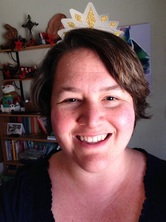 New Year's Eve 2013 after my prison visit. New Year's Eve 2013 after my prison visit. Tomorrow is New Year’s Eve, the last day of 2015 and my birthday. I’m a New Year’s Eve baby, which means that all my life people have asked me if my parents were happy to have me as a tax deduction. I’ve spent the last few weeks working on my 2016 writing strategy and I’m getting really excited. But before I let go of 2015, I thought I’d share a few of my New Year’s Eve / Birthday memories. They say that when your birthday is New Year’s Eve, the whole world is partying with you. But growing up in a family-owned business meant that the one thing I could always count on every year for my birthday was inventory. I spent more birthdays counting office supplies than I can count on two hands. And I admit – I loved it! I’m an office supply freak and proud of it. My cousin and I used to team up and eventually we’d be so loopy we’d start making up songs and giggling like crazy. On my 21st birthday, I was visiting my hometown during winter break and I did what many people do – I bought my own alcohol (woo hoo!). Unfortunately, I was so sick that I didn’t get to drink any and all I really remember from that birthday is throwing up around midnight. The year before I had my son, my husband and I spent the holidays with his mother in Washington D.C. She surprised me with tickets to see Wicked at the Kennedy Center on New Year’s Eve. We dressed up, enjoyed the show and then a champagne toast with hundreds of other D.C. theater-goers. That was one of my very favorite birthdays. Then, a few years ago, I spent several hours at our nearby prison facility negotiating a service contract to care for inmates who’d been raped. The warden and my liason surprised me with a delicious cake. I’d never met these people before but something about working together on such an important issue created a strong bond. I’ll truly never forget that kindness. So, these are just a few tales of birthdays past. I’ve been blessed with wonderful friends and family who’ve shared experiences with me and helped me to create memories that will last my whole life. I’m grateful for all the wonderful opportunities I’ve been given this year and am looking forward to an exciting and productive 2016. By the end of next year, I’ll be looking back on travels, a wedding and all the wonderful things that life has in store. Happy New Year! 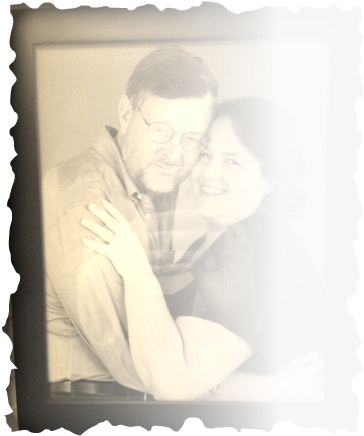 Felicity stretched and yawned in dramatic fashion. She was reluctant to get out of bed but, as always, she’d woken up starving. Today was the day. The big day. The day she would finally get rid of the other woman. She smiled, self satisfied, and stared at her handsome man sleeping just a few inches away. Today is the day, she thought to herself and she calmly, casually walked out of the bedroom. After breakfast, she went about her basic routine, pausing now and again to relax before she put her plan into motion. If all went according to plan, the day would explode into a whirlwind of drama and she would find herself alone with her darling love again. Like the old days. It had been a quiet day. Her beloved had stretched out on the couch for a mid-afternoon nap and Felicity walked slowly upstairs, careful not to attract any unnecessary attention to herself. She stopped to gaze out the window. The other woman, oblivious, unaware that any moment now her life would be torn in two, sat watching television just a few feet away. For a moment, Felicity hesitated. Was it really necessary? After all, there were times when she genuinely liked her rival, enjoyed her presence, even sought her out. But she shook her head and strengthened her resolve. She made a small sound, just enough to get the other woman’s attention. “Do you want to go on the deck?” the woman said, her attention finally pulled away from the ridiculous images on her screen. She’d been watching some Christmas musical and grinning like an idiot. Felicity nodded and followed the other woman onto the deck. She was restless and paced as the woman watched her, bemused. It’s time, she thought. And without another thought, she threw herself over the rail. She felt a rush of fear, but as she fell, she glimpsed the other woman, a look of pure horror spread across her face and Felicity’s fear was replaced with sheer exhilaration. She was pretty sure she would survive the fall but was pleasantly surprised to find that she’d landed without injury. Slowly, cautiously, she made her way to the side of the house. Behind her, she heard voices filled with alarm. The air outside was crisp and welcoming. Felicity felt a freedom that she’d rarely experienced. Her life would be different if she could only make it away, to safety. She crept along the side of the house and was quite sure she’d made it when a pair of warm hands wrapped around her middle. “Bad kitty” said the soothing voice of her beloved. And he carried her inside, past the sobbing woman on the steps. Her plan was thwarted. As soon as he put Felicity down, he rushed to find out how SHE was doing. The concern on his face made it perfectly clear. Felicity groaned. SHE was here to stay. |
AuthorI'm generally pulled in a million different directions and I wouldn't trade it for the world. Here's a glimpse of my life - hope you enjoy it! And if there's a big lapse between posts, well, that's the way life goes in Amy's world. Archives
October 2022
Categories
All
|
|
Copyright 2024 by Amy Rivers. All rights reserved. |
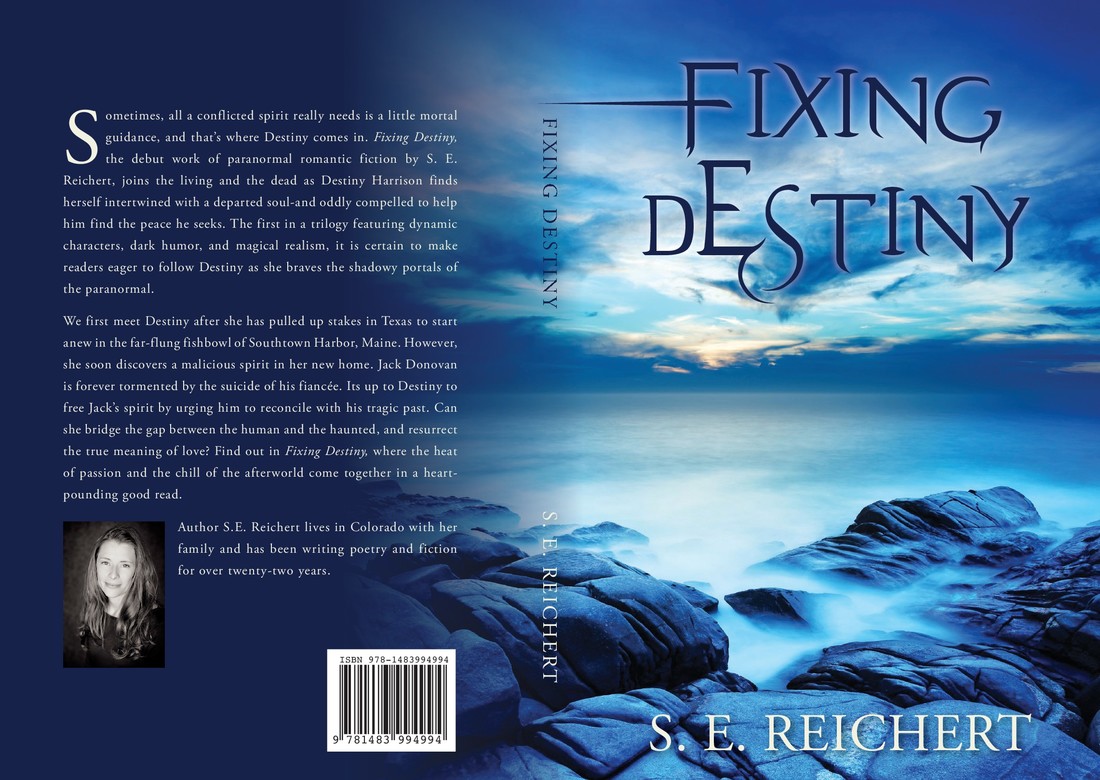
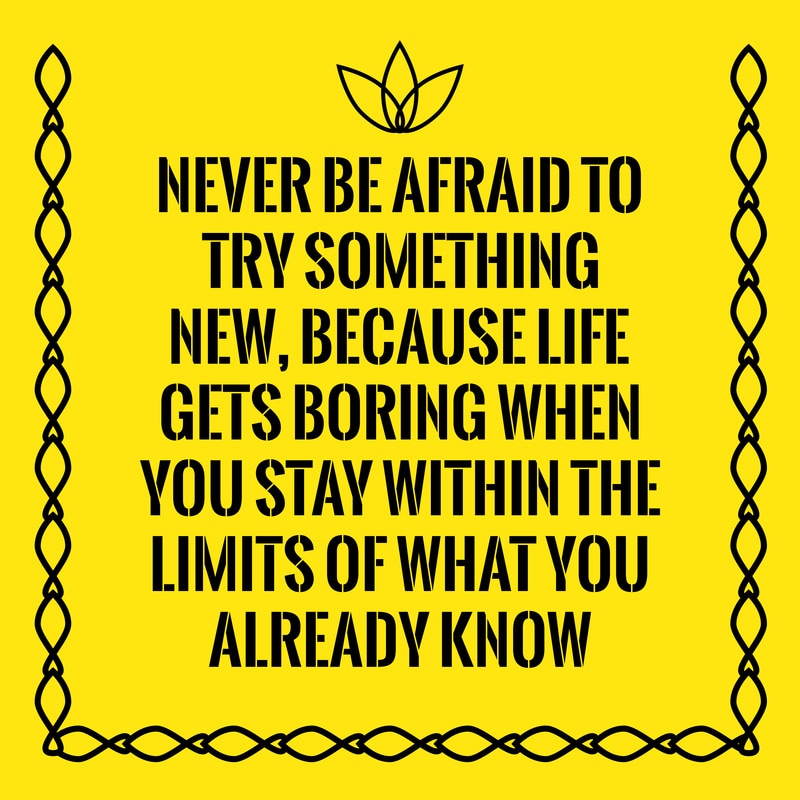
 RSS Feed
RSS Feed